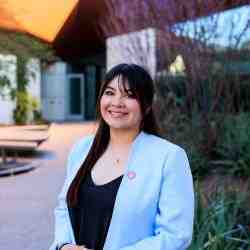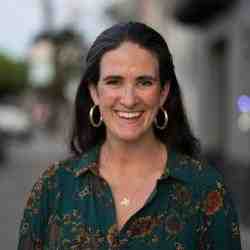Introdução
João Paulo is meeting the growing need for quality, timely, and inexpensive healthcare by connecting low-income patients to doctors and giving them immediate access to medical appointments. Through his Hours of Life Institute, João is not only filling a gap left by the public healthcare system, but also providing the medical community a way to lead and change the conversation about health and wellness in Brazil.
A nova ideia
The Brazilian public health system is known for its inefficiency, due to the high demand for health care and lack of public infrastructure to meet it. In São Paulo alone, the waiting list for public healthcare in 2014 has approximately 600,000 people. Meanwhile the private system is not even an option for most Brazilians because the cost is so high. João Paulo Ribeiro, a gerontologist who has always been concerned with treating low-income individuals, noticed this demand for healthcare and realized that many private doctors would be willing to donate their time to assist those needing care if presented with the appropriate tool. Thus, João Paulo created Horas da Vida (Hours of Life), a simple solution that matches doctors and low income patients – to groups otherwise unlikely to meet -- to fulfill the unmet need for healthcare access and provide an outlet to serve low income populations.
The Hours of Life Institute is an online platform that connects qualified private practitioners with low-income individuals in need of free health care. Structured in its partnerships, Hours of Life engages actors across various sectors to transform access to health. On the service provider side, João has built a network of doctors that are willing to donate hours, tapping into their intrinsic desire to make a change in society. His partnerships also involve other services, such as laboratory exams and free eyeglasses and João is in the process of establishing a partnership with the public system to attend to the more complex cases.
On the patient side, João is partnering with credible civil society organizations whose beneficiaries require health care, ensuring that the patient really needs treatment by enabling social and medical screening. Through his low cost and easily scalable platform, João plans to expand his initiative to all 400,000 doctors in Brazil, and its millions of low-income residents who could not otherwise access their services.
O problema
Brazil has over 200 million inhabitants, 75% of whom depend on the public health system because they cannot pay for private health treatments. However, the system is backlogged. Public investment in healthcare in Brazil is R $2 per capita (USD 0,80), meaning the country spends less on healthcare by percentage of GDP than most other countries in South America and Africa. With such a demand for healthcare, 94% of public hospitals have problems with overcrowding and most lack both doctors and high-tech equipment. Due to these shortages, wait time for treatment is one of the most glaring problems -- users face long queues, sometimes waiting months or even years for non-emergency surgeries.
Another problem is the mismatch between public funding and actual needs. Most of the public investment in healthcare is allocated to complex health issues, while 80% of the population's actual health problems are basic. Thus, the treatment of non-urgent cases in emergency departments makes the system even more inefficient due to lack of basic healthcare facilities. This is exacerbated by the lack of decent screening and diagnosis of the patients’ conditions. Overall, the system is structured with a focus on disease rather than on wellness.
The private system, on the other hand, is inaccessible to all but small portion of the population, due to its high cost. Qualified doctors charge high prices, and as a result serve only 15% of the population. Physicians themselves are interested in serving low-income patients for free or reduced cost, but are not able to as there is no channel to facilitate this process. Doctors would need to go outside of their private practice in order to treat the patients who need it most, which is resource intensive. What’s more, they have no infrastructure to source the patients who need care.
A estratégia
After creating ConsultaClick, an enterprise that connects patients and doctors in order to schedule private appointments, João Paulo Ribeiro turned his attention to finding a simple solution for the comprehensive health problem in the country. The result was Hours of Life Institute, a platform that connects people in vulnerable situations requiring healthcare with private physicians who are willing to donate hours of service. Through his partnerships, João removes barriers between sectors to ensure that patients receive quality care -- the same caliber treatment offered to wealthier patients -- and that the different actors in the health field participate together in the solution.
To source patients, João works with CSO partners who have contact with low income patients excluded from the healthcare system. At this stage, he finds and selects the partners from those who have a national and international reputation for their work with low income populations. He is starting here because these organizations are credible sources who know their beneficiary populations well. As he scales, João intends to expand patient sourcing by partnering with other players beyond CSOs -- such as tapping into the public healthcare system’s database -- as the network of physicians involved in the project grows.
To ensure that the portal helps patients who truly need treatment, João relies on these trusted partners to refer their beneficiaries to the Hours of Life system. The online platform for scheduling a medical appointment is powered by ConsultaClick. Social workers from the CSOs assist patients in accessing the platform and filling out the socioeconomic and technical screening forms. Then, the patient gives Hours of Life five scheduling possibilities (date and time). On the other side, Hours of Life performs the medical screening of cases through a health questionnaire, assessing the medical specialty to which the patient should be directed, thereby optimizing time and resources. Hours of Life then matches the scheduling possibilities of the patient with the availability of the specialist and gets back to the patient with the appointment date and time. The appointments are always scheduled at a time suggested by the patient, reducing absenteeism
On the side of health professionals, João began mobilizing doctors both from his personal network and from those who are highly respected in the country. These well-known doctors are references in the field, and their engagement with the project gives it credibility and incentivizes other doctors’ participation. The doctors that apply to participate in Hours of Life also go through a screening process. This includes a reference check with the Regional Medicine Council to ensure that the doctor is not involved in any ethical issue and, if the doctor claims to have a specialty, a background check with the agency responsible for the specialized certification to ensure that he or she does in fact have the appropriate credentials. Once they are accepted into the network, the physicians can choose how many hours they want to donate to the project. Then, Hours of Life is responsible for matching them with the patients and for sending reminders.
Because this is a network of trust, personal referrals are an effective way to add more doctors to the network. When a doctor refers a colleague to such an impactful project that does not necessarily require much of his or her time, it is hard to say no. Most doctors are already interested in donating hours, they only lack a platform to do so. As a result, many who start by donating one hour per month end up giving much more time. The engagement with Hours of Life, therefore, allows them to fulfill the social aspect of their professions, and to find personal satisfaction, while providing a valuable service to the patient. Because doctors are seen as examples in society, the mobilization potential of the project in terms of encouraging a volunteering culture in the country is even higher.
In only two years since it was created, Hours of Life has a network of over 400 doctors, which grows weekly. Hours of Life also has partners that provide laboratory exams and free eyeglasses if necessary. João is also on the way to establishing a partnership with the public sector for the referral of more complex cases that require hospitalization or surgical procedures. To further its reach and network, João also has partnerships with opinion leaders and media vehicles, such as Catraca Livre. He also mobilizes the doctors themselves, organizing meetings and lectures with them to raise awareness of Brazil’s healthcare problems and urge them to act.
Beyond promoting access to treatment for individual patients, João is an advocate for health education and wellness promotion. Therefore, in addition to appointments, Hours of Life also conducts educational lectures and health treatment events for the general public. Also, in partnership with CSOs and their beneficiaries, Hours of Life identifies the most pressing issues to be addressed in prevention and health promotion and invites professionals to participate in the campaigns and educational sessions. So far, sessions have been conducted in the subjects of diabetes, high blood pressure, and STDs -- issues that are particularly prevalent in low income contexts.
Hours of Life is currently operating in São Paulo, Rio de Janeiro, and Porto Alegre, with more than 3,000 patients using the platform and a potential audience of 30,000, through the CSO partners. Due to its low cost and high impact, the initiative can be easily replicated across the country. To do so, it is not necessary to have a local team, but only to forge more partners who use the platform, since it can exist in any location. In the long run, João envisions Hours of Life to be operating in different countries across the region and globally.
A pessoa
João Paulo was always restless. Ever since he was a child, he sought to understand the “whys” of things through biological experiments. His family has always been involved in social work; every Sunday, elderly from a shelter nearby came to have lunch at his home. As an adult, he naturally chose to study medicine. At college, João became involved with various student activities, such as the Academic Center, sports, and tutoring. Always an entrepreneur, in this period he developed a system for preventing HIV infection in anatomy classes that was standardized by the medical schools in Brazil. After graduating, João specialized in geriatrics. He was always very interested in the humanization of health and wellness, and attended courses in these areas.
While teaching at Paulista School of Medicine, João founded the Association of Physicians of this school. As a teacher, realizing that their students needed guidance, he started to mentor them on how to open their own private practices. From this work, João founded a company to provide newly graduated doctors with their first jobs, Sigma Healthcare. The doctors would treat low-income people in the outskirts of Sao Paulo through his organization, which was then funded by the public health system.
With the evolution of the company and the process of specialization of the medical team, João Paulo saw the opportunity to create ConsultaClick, a platform for online healthcare appointment scheduling. Always concerned with the plight of the poor, João decided to create an institute that would use ConsultaClick’s platform to care for this population, so he created the Hours of Life Institute. The fact that João is a physician is essential to the success of the project, which brings with it the respect and credibility of the medical community. For the future, João envisions many ways of expanding partnerships to increase the social impact of his project, such as freemium models and partnerships with the public system as well as large companies to bring the project to remote areas.



